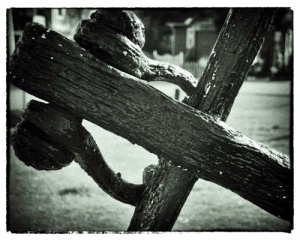Friends
A colleague preached the following at a neighboring church Sunday mor ning June 22, 2014. Commenting on Matthew 10: 24-39 he said:
ning June 22, 2014. Commenting on Matthew 10: 24-39 he said:
Remember that God is always working behind the scenes on our behalf. If this is the case, who shall we fear? As I said in previous sermons, we live in a consumerist society where the multinationals control everything and the system of globalization remains firmly implanted in the world. A system that is driven by the dollar, perpetuating and continuing to promote injustice, hunger, poverty and contamination due to the indiscriminate destruction of God’s natural resources and of the communities that live on His land. The selfishness of some people results in the suffering of many. Fear not those who continue to destroy God’s creations. As Christians it is our challenge, our duty to defend God’s creation, not only for our sake, but for the sake of generations to come; for the sake of all humanity.
Bravo Dimas. Dimas has been a priest for only a couple of weeks. As a lay person, and in his home country of El Salvador, he lived through the turbulent years following the assassination of Oscar Romero who he quotes with insight and ease. His love people and creation comes through in all his speech and reflection.
May God help us all to speak up, loud and clear as we confront the forces of evil which skulk about in our midst.
Ken Gray
p.s. What was preached in your church on Sunday, June 22? Anything about creation? Just askin’







